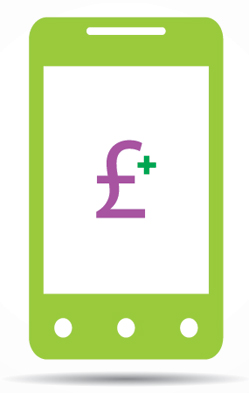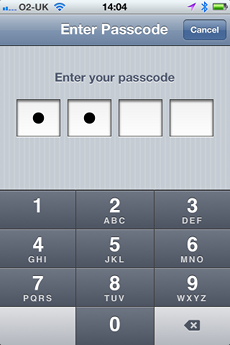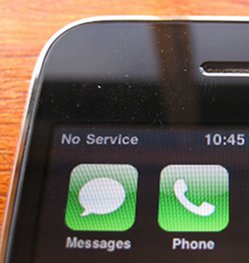Blog posts tagged mobile phones
Get ready for the end of EU data roaming charges
 Here's some good news for pretty much anyone who travels within the EU – either for business or pleasure. At the end of last month, the EU confirmed that data roaming charges are set to be abolished by June 2017.
Here's some good news for pretty much anyone who travels within the EU – either for business or pleasure. At the end of last month, the EU confirmed that data roaming charges are set to be abolished by June 2017.
As the ban approaches, a 14-month interim period will apply. During this time, companies will still be allowed to add surcharges, but at a reduced rate. The European Commission reckons this alone will make roaming within the EU 75% cheaper than at present.
Dave Millett works for independent telecoms brokerage Equinox. He says that although this seems like good news on the face of it, it does leave a number of questions unanswered:
1. What will happen to roaming charges elsewhere?
The EU has forced mobile companies to cut roaming costs before. When they did so, many customers saw an increase in roaming costs for other parts of the world.
2. Why is it taking so long?
The EU has taken a clear stand on this issue. Roaming costs are to be abolished. So, why do we have to wait two years for it to happen? Sure, costs will drop in the interim. But 24 months is still quite a wait.
3. What happens to people mid-way through a contract?
Many mobile contracts include data roaming bundles, usually sold to customers on the basis that they're cheaper than standard roaming costs. Will the operators reduce the price for customers with these packages?
4. What about making calls?
While the elimination of data roaming costs is certainly to be welcomed, what about the cost of making and receiving calls? If the principle applies to these too, shouldn't roaming costs for voice calls be abolished?
Finally, with the UK's planned EU referendum as a backdrop for these changes, what will happen if the UK decides to leave the EU? Could we end up with new roaming charges, just as the rules abolishing them come into force?
Will we ever let go of text messages?
 The first text message was sent back in 1992, which means the SMS message is now 22 years old.
The first text message was sent back in 1992, which means the SMS message is now 22 years old.
Not many technologies make it to that sort of age without a few cracks showing, but text messages are proving remarkably resilient — even in an age of instant messaging services like WhatsApp.
The development of text message
Developed in the 1980s as a part of the GSM mobile phone standard, the first ever SMS with the words Merry Christmas wasn’t actually sent from a phone, but from a computer. Up to that point, mobile phones hadn’t needed to support a messaging function.
And really, it wasn’t until mobile operators dramatically improved the user experience in the late 1990s and early 2000s that SMS really took off.
The development of text messaging was spearheaded by the UK and Scandinavian countries, but it really didn’t take long for SMS to spread globally.
For instance, in the US text messaging really exploded when text voting was introduced in the American Idol TV show.
Text messages and security
New applications keep emerging for text messages, even though the technology is well into its third decade.
Banks have picked up on the fact that professional SMS platforms have greatly improved their security features in the last few years, allowing financial institutions to use text messages to deliver sensitive information.
In fact, security is a common theme for text messages. In 2014, two-factor authentication — which often relies on SMS — has been thrown into the spotlight.
High profile security breaches — such as the iCloud hack — have seen a wide scale roll out of SMS based two-factor authentication. This turns any mobile phone into an extra layer of security, without requiring extra equipment.
The future of SMS
Text messages provide a robust channel that’s ideal for emergencies, allowing public services to broadcast information. It can also be a good fall back option for mobile users when voice or data services are down.
The increasing numbers of cities and counties across the US rolling out text-to-911 services is just one example of how SMS is growing around the world.
To put it simply, text messages aren’t going anywhere. The technology might be 22 years old, but the way in which it continues to adapt and evolve marks it as a technology that will stand the test of time.
Copyright © 2014 Silvio Kutic of Infobip.
Six ways your mobile network could be about to sting you
 Earlier this year, new rules came into force that limit what mobile networks can charge when you use your phone abroad.
Earlier this year, new rules came into force that limit what mobile networks can charge when you use your phone abroad.
These rules were widely lauded as A Good Thing. But don’t be fooled — there are still plenty of ways you can end up paying over the odds for your mobile phone.
Here are six of the most common, courtesy of independent telecoms brokerage Equinox.
1. Roaming away from Europe
Outside the EU, roaming costs can still be extortionate. In places, prices have gone up to counter the EU price caps.
If you’ll be travelling for an extended period, make sure you understand these roaming costs before you go. Often, it’s cheaper to buy a local SIM card to use while you’re travelling.
You can also use free Wi-Fi to stay online. Combined with a VoIP app like Skype, this can be a cost-effective way to call home, too.
You might also take a look at Roamer, an innovative app that uses a callback system to sidestep network roaming costs.
2. Locking your phone
If you bought your mobile phone direct from your mobile network, you may find it’s locked. This means the handset will only work with SIM cards from that particular network.
Networks will usually unlock your handset, particularly if you've reached the end of your minimum contract period. However, it can take up to four weeks and they'll often charge you to provide an unlock code.
(You’re sure to have seen entrepreneurial shops that offer services to unlock handsets. In our experience these are a reliable, cheap option. However, using an official supplier means there’s always a slight risk your handset could end up as a brick if something goes wrong.)
3. Charging over the odds for handsets
Equinox claims that mobile phone networks sometimes inflate the value of the handset they supply you. This means that, over the course of your contract, you can end up paying significantly over the odds.
It may work out cheaper overall to buy the handset outright, then purchase a SIM-only deal from your preferred mobile network.
4. Paying a lot for a 'free' phone
There’s no such thing as a free phone. When you sign for a contract that includes a ‘free’ handset, you actually pay for it in every monthly payment.
According to Equinox, one reason mobile networks like this approach is that they can keep charging you the same monthly fee, even long after you’ve covered the cost of the handset.
One recent report found that Britons could save nearly £1bn by switching to cheaper tariffs at the end of their contracts.
5. Keeping you in a perpetual contract
Mobile phone networks have a number of different ways to keep you locked in to a contract. For instance:
- Mid-term renewal. Half way through your 24-month contract, you'll be offered the chance to sign for another 24 months in return for a new handset. But this means you never get to the end of your contract, so you can’t compare costs on the open market.
- New handset, new contract. If you’re not careful, you’ll find you commit to a new two-year contract each time you add a handset to your business account. To avoid this, look for a 'co-terminus contract' where all phones share the same end date.
Again, opting for a SIM-only deal can help you stay flexible. Many providers offer good deals on one-month rolling contracts.
6. Paying for an unlimited deal
According to Equinox, the mobile phone industry likes to promote packages offering unlimited calls and texts.
These deals sound attractive, but you can end up paying over the odds. Businesses often overestimate the volume of calls they make, and fail to choose a service that corresponds to their actual usage.
The thing to remember here is that you can usually switch to a more expensive package at any time. But once you’ve locked into an unlimited deal, you won’t be allowed to downgrade to a cheaper option until your contract ends.
Are lower EU roaming costs a good thing?
 |
| Does mobile roaming make you anxious? |
New rules have come into force that slash the cost of making and receiving calls, sending texts and using mobile internet in other EU countries.
Recent years have seen the EU clamp down on roaming charges by introducing caps to limit how much extra mobile phone networks can charge when you visit another EU country.
EU roaming is cheaper than ever
Over time, the maximum charges allowed under the caps have been reduced. Under the latest rules, you can be charged a maximum of:
- 20 cents per megabyte (MB) of data
- 19 cents per minute to make a call
- 5 cents minute to receive a call
- 6 cents to send a text message
The European Commission has created an infographic to show you roughly what €10 should now get you.
Ultimately, European leaders hope to eliminate roaming charges altogether. Yes, one day you may be able to use your phone anywhere in the EU without paying extra for the privilege.
So, this is the perfect good news story for the beginning of the holiday season, right?
Well, while most people would probably agree that roaming costs have been too high for too long, there are a couple of less-positive aspects.
Should you choose a bundle?
For a while now, many UK mobile phone networks have offered add-on bundles to people who are travelling abroad.
For instance, if you’re travelling in Europe, EE will give you 100MB of data for £3. The data expires after 24 hours, but it’s a good deal if you plan to use the internet a lot, even compared to the new capped prices.
The thing is, many people get confused about how much data they actually need.
With standard roaming costs now lower than ever, it may be in the interest of mobile networks to push people towards bundles — even if that’s often not the best option for their customers.
Opting out of roaming
Now EU roaming is cheaper, you can bet we’ll do more of it. And that raises a broader question: when we’re on holiday trying to ‘get away from it all’, is it really a good idea to stay in such easy contact with the office?
Going on holiday can make you feel better for weeks or months afterwards. Switching off completely lets you relax properly, rather than thinking about all the things happening back in the office.
That temptation to check your email while you’re on a break just got slightly stronger. Can you resist it?
John McGarvey is editor of the IT Donut
What to expect from iPhone 5 ... and the phones that already deliver it

A queue outside a London Apple Store for iPhone 4. (Image: Eddie Shannon on Flickr.)
Unless one of the world's most valuable companies is trying to mislead us all, Wednesday will see Apple unveil iPhone 5. The latest in its line of smart phones, the shiny, desirable object will almost certainly prompt long queues at Apple stores and deliver a surge in sales. Shareholders must be rubbing their hands with glee.
Rumours abound about what new features iPhone 5 will have, and some of the less outlandish suggestions seem pretty much guaranteed. We look at three top feature rumours and ask whether they'll really make a difference to how your use your phone. We've also rounded up some phones which already offer them.
1. A bigger screen
Although smart phone screens have grown larger over the last couple of years, Apple has stuck with a 3.5" screen for its iPhone. Expect that to change for iPhone 5, which looks likely to offer a 4" screen that will be taller, yet no wider. It'll allow more space for apps, email, websites and maps, without making the phone harder to use one-handed.
Is it worth having?
Probably. A larger screen may appeal to existing iPhone users, and taller-but-not-wider proportions would keep the phone more pocket-sized and easy to work with one hand. However, big screens often mean reduced battery life, and can an extra half inch really make that much difference?
Other options
There are heaps of smart phones out there with bigger screens. But if you really want a phone with a large screen, why hold back? The Samsung Galaxy S3 has a huge 4.8" screen, which is certainly handy for viewing websites and documents. It costs around £450 to buy outright, or you can get it for £25 when you sign up for a £36 a month contract with T-Mobile.
2. A new connector
Apple's range of iPods and iPhones uses a long, thin connector for charging and transferring data. But to keep the phone as small as possible, it looks like the company will move to a smaller connector with iPhone 5. This will frustrate existing iPhone owners, who will - presumably - have to ditch all their accessories if they decide to upgrade.
Is it worth having?
No. Engineering benefits aside, any change to the connector will simply spell inconvenience for existing iPhone owners who are upgrading. It also means none of the super-cheap iPhone cables you can currently find online will work.
Other options
Apple seems to take pleasure in forcing its own standards onto things like connectors, yet there's a perfectly good universal connector out there. It's called Micro USB, and you'll find it on many other handsets including the Nokia Lumia 800. This mid-range Windows Mobile handset is available for free with a £30 a month Three Mobile contract, or for £300 outright.
3. A faster processor
Today's smart phones are super powerful. Pretty much whichever one you buy is likely to have more than enough oomph for web browsing, playing games and so on. I've had an iPhone 4S for months and it's still snappy with no sign of slowdown. However, many experts expect iPhone 5 to come with a quad-core processor, which should make the phone faster when you're running several apps.
Is it worth having?
At the moment, there's little benefit because few apps require all that processing power. Fast forward a year though, and you might be glad of the power - historically, the iPhone's new features have only been fully exploited over time.
Other options
There's no shortage of quad-core smart phones on the market at the moment. The HTC One X is a monstrously-powerful handset that's received excellent reviews. It's free with a £36 a month T-Mobile contract, or you can get it with no ties for £419.
Apple's box of tricks
The big unknown with any Apple launch is, of course, which of the more outlandish rumours are true. Could we see a phone with a built-in chip that allows you to pay for things, fingerprint recognition ... or something that nobody has guessed yet? Find out on Wednesday.
Friday Donut tip: don't let your Android phone or iPhone be a weak point
Today's Friday tip is from the IT support experts at Inbay.

If you don’t already have a smart phone, then chances are you will soon. These small gadgets are great for organising information and work.
But with so much information stored on it, your smart phone can be your worst enemy if you misplace it.
To protect it, the most basic thing you can do is set a security passcode. This will prevent anyone using your phone without entering the right code first.
Protect your iPhone
For Apple devices, like iPhones, here's how:
- From the home screen, tap Settings
- Tap General
- Tap Passcode Lock
- Tap Turn Passcode On, then enter a four-digit PIN
- Re-enter the same PIN
Protect your Android handset
If you have an Android phone, like Samsung's Galaxy SIII or the HTC One X (both recently named among TechRadar's best Android phones), choose Settings, then Security, then Select screen lock.
Depending on your handset, you'll be shown a number of options for locking and unlocking your phone. You can have to draw a pattern, enter a PIN, choose a password or even use facial recognition!
Further precautions
Although a passcode provides basic protection and stops other people using your device, it can be essential to know that your data is not accessible to even the most determined thief.
Android, Blackberry and Apple devices all have features to allow your handset to be wiped remotely. Some can even be set to scrub all data if an incorrect passcode is entered too many times.
This Friday Donut tip is a guest blog by Mark Howe and Gary Mercury from Inbay, a support firm that's redefining the way technology and technical assistance is delivered
Previous Donut tips:
O2 mobile meltdown is a warning for your business
 If - like me - you're an O2 mobile user, you may well have found your phone strangely silent yesterday afternoon. From around 2pm, thousands of customers were unable to make or receive calls on the company's network.
If - like me - you're an O2 mobile user, you may well have found your phone strangely silent yesterday afternoon. From around 2pm, thousands of customers were unable to make or receive calls on the company's network.
As I write this the company says the problem is on the way to being fixed, but the resulting news stories and thousands of tweets don't make pretty reading for the telecoms giant.
In a world where we rely on mobile phones for, well, everything, it can come as quite a shock when the expensive one in your pocket is rendered useless for 18+ hours.
No calls. No texts. No emails. No tweets. No maps to guide you if you're in a strange place. No point in having the thing!
Your business, incommunicado
The consequences of this outage for business could be serious. If you're out and about, you can be rendered incommunicado. Companies which rely on homeworkers or have mobile sales teams are likely to have been particularly hard hit.
If customers and colleagues can't get hold of you, it holds things up. Decisions don't get made. Perhaps sales get missed.
If you've been affected by the outage, it's lousy. But it should be a wake-up call for all of us: sometimes, these things happen (they shouldn't, but they do). And that's why you need to be prepared.
Coping with mobile meltdown
The problem is, short of buying a second mobile phone on a different network for each member of staff, it's hard to put in place a failsafe backup for this sort of event. Even if everyone does have a second phone, it's no good unless people know its number!
However, here are three suggestions that can make it a little easier to stay in touch during a big mobile outage:
- Spread the risk. Instead of issuing all your staff with mobiles from the same provider, split them between two if it's practical. At least that way not everyone will be affected by a single-network problem. (Obviously this isn't always worthwhile, because your business will have to deal with two suppliers, two different support numbers and so on.)
- Adopt basic VoIP. If you don't already use VoIP in your business, make sure everyone with a smartphone has an app like Skype on it. This will at least allow your staff to make and receive calls when connected to a wireless network. It doesn't mean callers can reach you on your normal number, but at least you can place calls.
- Communicate the issues. Let people know you're experiencing communication problems in any way you can. Put a message on your website, mention it on your Twitter and Facebook pages, and be sure to mention it in emails to customers and clients during the outage.
More fundamentally, perhaps problems like this highlight the benefits of a unified communications system. That can give you just one number, which you can redirect to wherever required.
Has your business been hit by the O2 outage? Is your service back to normal yet? Leave a comment and let us know how you coped.
- VoIP explained
- How unified communications can help your business
- Your 20-minute business continuity plan
(Image: Flickr user sridgway under Creative Commons.)



